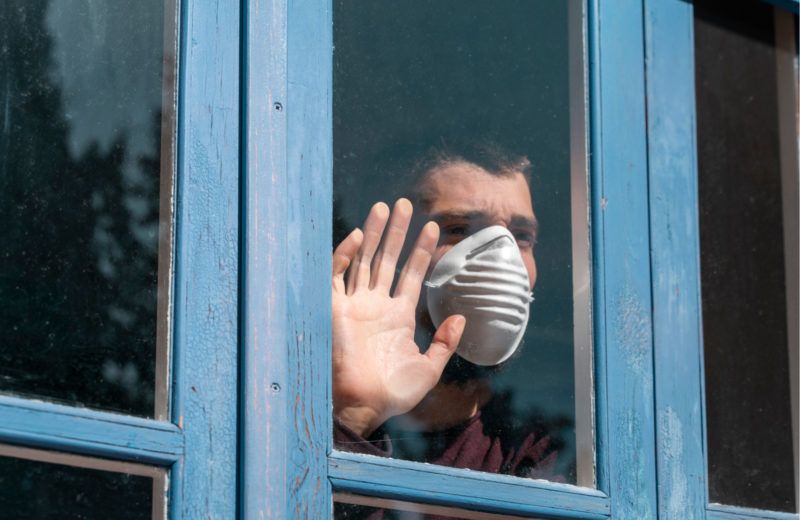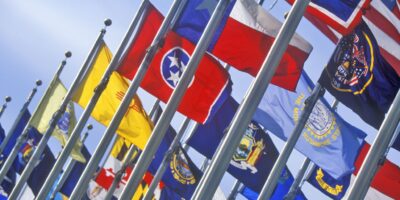A Plan to End this Madness

The world has 99 problems but coronavirus is only one of them – and arguably not the most important. The world’s biggest problem right now seems to be a type of irrationality called groupthink. It occurs when there is a lot of information of dubious quality about and a lot of uncertainty on a topic widely recognized as important. The Harvard Business Review says it infected JFK’s inner circle, but Jack nipped it in the bud before it caused a nuclear holocaust in October 1962.
We are not there yet, but the COVID-19 Crisis is rapidly becoming an existential one because apparently nobody can think rationally about what steps to take to a) keep people as safe from the novel coronavirus as they want to be and b) to prevent the economy from sinking into Depression.
The crisis has been presented time and again as a tradeoff between lives and money but, in fact, this is an instance where we can have some of our cake and eat some of it too, all by remembering what once made this country great: individual liberty.
The key insight is this:
That an individual or family leaves their place of “shelter” does NOT expose another individual or family to SARS-COV-2. The only way that another can be exposed is by leaving their place of “shelter” and coming into contact with someone or something that carries the virus. Therefore one individual or family has no business telling another individual or family to stay indoors, or vice versa.
That basic point seemed widely understood early in the crisis.
Some governments, though, said that all people leaving their respective places of shelter caused negative externalities for others, namely in the form of getting infected, spreading it to others, and potentially needing hospitalization and, eventually, funerary services.
They therefore suggested, cajoled, and eventually ordered socioeconomic practices designed to “flatten the curve,” to avoid as much as possible the negative externalities caused by lots of people getting sick and needing medical care at once.
At that point, many policy analysts crunched numbers and found that the most pessimistic models were not adding up but could not offer anything more certain in their stead.
Others launched into ideological debates about Left and Right, right and wrong, socialism and capitalism, i.e., the usual drivel about nothing.
In the meantime, we all forgot that first crucial point: that one person doesn’t control what happens to another person, only that other person does. How does that insight help us? Well, add it to the notion that adult human beings are the best judges of their own actions, particularly when reputed authorities admit they have insufficient information and understanding to know what will happen, and the following protocol recommends itself:
- Let businesses do as they see fit: open, close, change hours, change policies, or maintain the status quo ante pandemic.
- Anyone or any family who wants to can remain in his/her/their respective shelters for as long as a state of emergency exists without fear of any sort of loss of services, permanent job loss, foreclosure, eviction, and so forth.
- Anyone or any family who wants to go about their lives can do so if they agree to self-isolate if they show symptoms of COVID-19, decline to seek hospitalization for COVID-19 and instead ride it out, and allow the proper parties to dispose of their bodies on an expedited basis, at the expense of their estate, should they perish.
This is what would occur in a state of natural liberty, i.e., if governments were not forcing everyone into option 2 on the supposition that everyone will want medical treatment. But some of us are willing to “flatten the curve” by opting out of hospitalization instead of opting out of our lives and liberty, a point I made a full month ago incidentally.
Some of you might think, “who in their right mind would choose 3?” but others are thinking the same of 2. There is no need to debate the matter as selection into each group should be entirely voluntary, with the caveat that 3 cannot be revoked once made so that they can credibly commit not to burden a healthcare system rendered unscalable due to regulatory sclerosis. But people who choose 3 can, of course, stay home if they think the risk of being infected has grown too high, especially given that they will not receive medical attention beyond what you can buy at the pharmacy.
I cannot say for certain what will happen but I imagine group 3 will be composed of people who already recovered from COVID-19 or think that they have developed immunity, young adults with no risk factors, and those skeptical of the severity of the outbreak or the risk of death or serious complication. And who knows, maybe, like the old Belgian woman who gave up her ventilator, brave grandparents will join 3, either as a noble sacrifice for their grandchildren or as a way of committing suicide due to the sadness over the whole situation that might infect their hearts.
Many proprietors and entrepreneurs will join 3 as well because there will be ample money to be made in the weeks and months ahead, if only figuring out how to best serve people who remain in group 2.
Some, many, most, or all of group 3 will eventually get COVID-19, depending on how much physical distancing and such they voluntarily undertake as they go about their daily lives. They will provide much-needed revenue to 1, especially those businesses, like haircutters, who can’t sell electronically or by delivery. And they will move us toward the herd immunity that will allow more and more members of group 2 to emerge until the curve has been flattened and the emergency ended.
This proposal is more tourniquet than economic panacea. Unless 3 grows very large, very quickly, the economy is going to suck for quite a while. No need to get fancy about this: supply is all that matters in the end. Bailouts and stimulus packages and such do not make toilet paper, or milk, or anything else for that matter; people do. Until people return to work and production ramps back up, many things will be in short supply, which means higher prices, shortages, and/or nonprice rationing (“limit one per customer”).
This proposal, however, does solve many looming political problems, like the specter of paramilitary police or National Guard troops shooting some Americans (those who would have volunteered for 3) with a probability of death near 1, to save some other Americans with a probability of death near 0. The only thing troops and police should be thinking about now is keeping us safe from foreign powers and terrorist attacks while our rear end remains so dangerously exposed.
There is no reason to turn on ourselves, just to get the groupthink out of our heads by realizing that unless our neighbors break into our houses and cough in our faces, what they do is their business, not ours. Our business is to do what we think best for ourselves and our families, whether that means cowering in the basement binging Tiger King or pledging not to seek medical care and rejoining the economy, you know that thing that keeps most of us alive and well.












